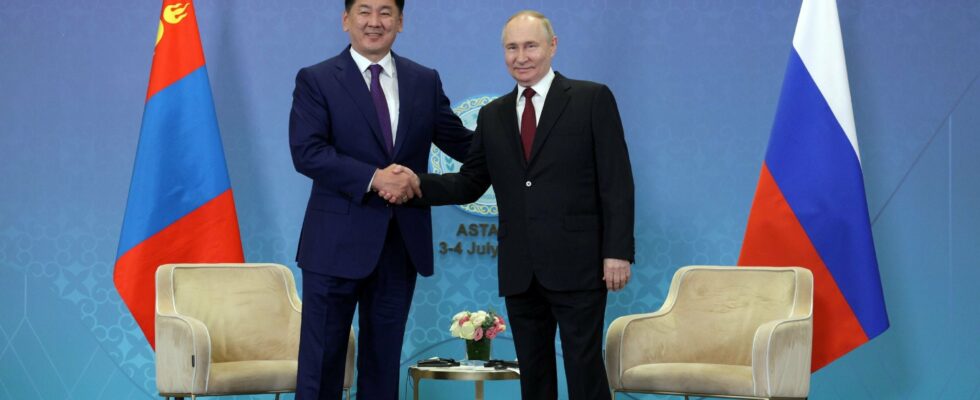In Astana, the futuristic-looking capital of Kazakhstan, there were only eyes for him. Chinese President Xi Jinping, landing aboard one of his four Boeings at Astana airport on July 2, understood that he would be the center of attention. On a state visit to Kazakhstan, coupled with its participation in the 24th summit of the Shanghai Cooperation Organization (SCO) on July 3 and 4, the Chinese delegation was welcomed by Kazakh President Kassym-Jomart Tokayev himself. An honor that, it seems, the 14 other heads of state who came from all over the Eurasian continent for this summit, including Turkish President Recep Tayyip Erdogan, Pakistani Prime Minister Shabhaz Sharif and even Russian leader Vladimir Putin, did not deserve!
Moreover, the Kazakh state media have paid almost no attention to the Russian president – despite being one of the historical founders of this organization in 2001 – in the wake of the Shanghai Group, created in 1996 by China, with Russia and four Central Asian states (Kazakhstan, Kyrgyzstan, Uzbekistan and Tajikistan). Initially, this platform was tasked with addressing issues of regional security and economic development and settling territorial disputes. Expanded in 2017 to include India and Pakistan, before granting entry to Iran in 2023, the SCO has asserted itself over the years as a battleground between Russian and Chinese influences.
China’s ascendancy over Moscow
But since the war in Ukraine, the wind has turned in Beijing’s favor. Russia is now marginalized by Chinese commercial power, as illustrated by the Mandarin inscriptions on the summit posters in the streets of Astana. Because for more than two years now, the Kremlin has become as much a pariah as an unpredictable ally. A malaise for some SCO member states, which are keen to improve their relations with the West.
Yet still economically dependent on Russia, the Central Asian states now prefer to turn to Chinese investments. “The Central Asian powers have made a pivot towards China without provoking the anger of the Kremlin. Because Xi Jinping is not Joe Biden!” explains a prominent Kazakh expert close to the circles of power.
In this role, Beijing offers a stable alternative by participating in infrastructure projects in Central Asia, such as the “New Silk Roads” or the Trans-Caspian Corridor, a trade route linking China and Europe via Kazakhstan, the Caspian Sea and the Caucasus – a project aimed at opening up Central Asia. It is no coincidence that the Chinese president held a series of meetings, on the sidelines of the summit, with Uzbek President Shavkat Mirziyoyev, Azerbaijani Head of State Ilham Aliyev and his Kyrgyz counterpart Sadyr Japarov. And if, on July 5 and 6, Xi Jinping was welcomed in Tajikistan with great pomp for a state visit.
Ambitions of an “anti-Western bloc” in Eurasia
Despite this rivalry for influence, Putin and Xi Jinping have shown polite proximity. Since the start of the war in Ukraine, the two counterparts have, let us not forget, strengthened their ties, by putting forward a pragmatic “limitless partnership” against the West. They do not intend to stop there: from the Eurasian continent, they intend to act, via the SCO, as a counterweight to Western institutions dominated by the United States. Proof of this is that this year 2024 marks the official entry into the regional organization of Belarus, a dictatorial regime, supporter of the Russian invasion of Ukraine and sanctioned by the European Union and the United States.
The Chinese president said the SCO was “on the right side of history” and should “resisting external interference in the face of real challenges of intervention and division.” Vladimir Putin, for his part, praised the SCO’s respect for a “peaceful settlement of the Ukrainian issue” unlike the West, and this in front of the UN Secretary General, Antonio Guterres, invited by Kazakhstan. A meeting between the head of the UN and the Russian leader was envisaged, but it ultimately did not take place.
